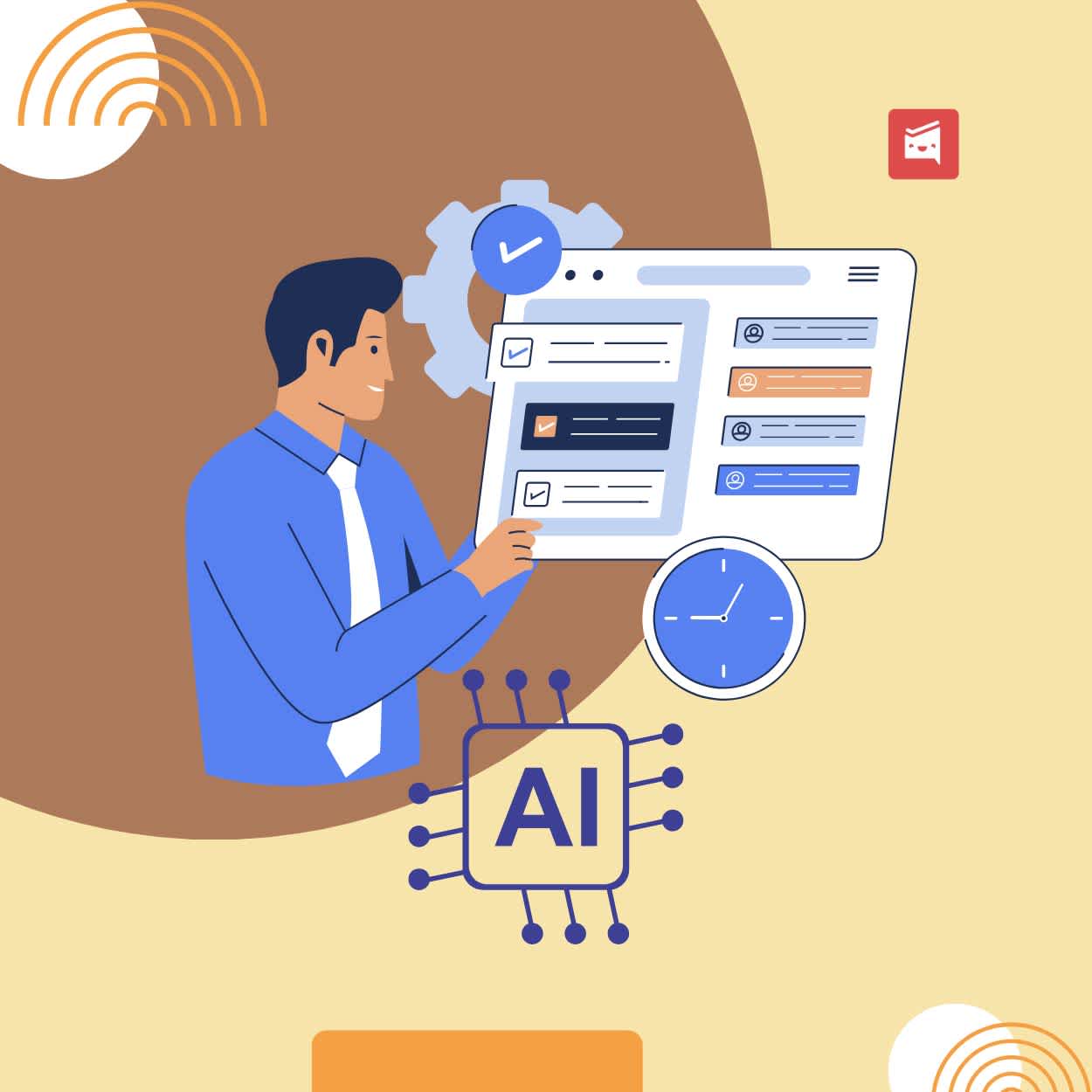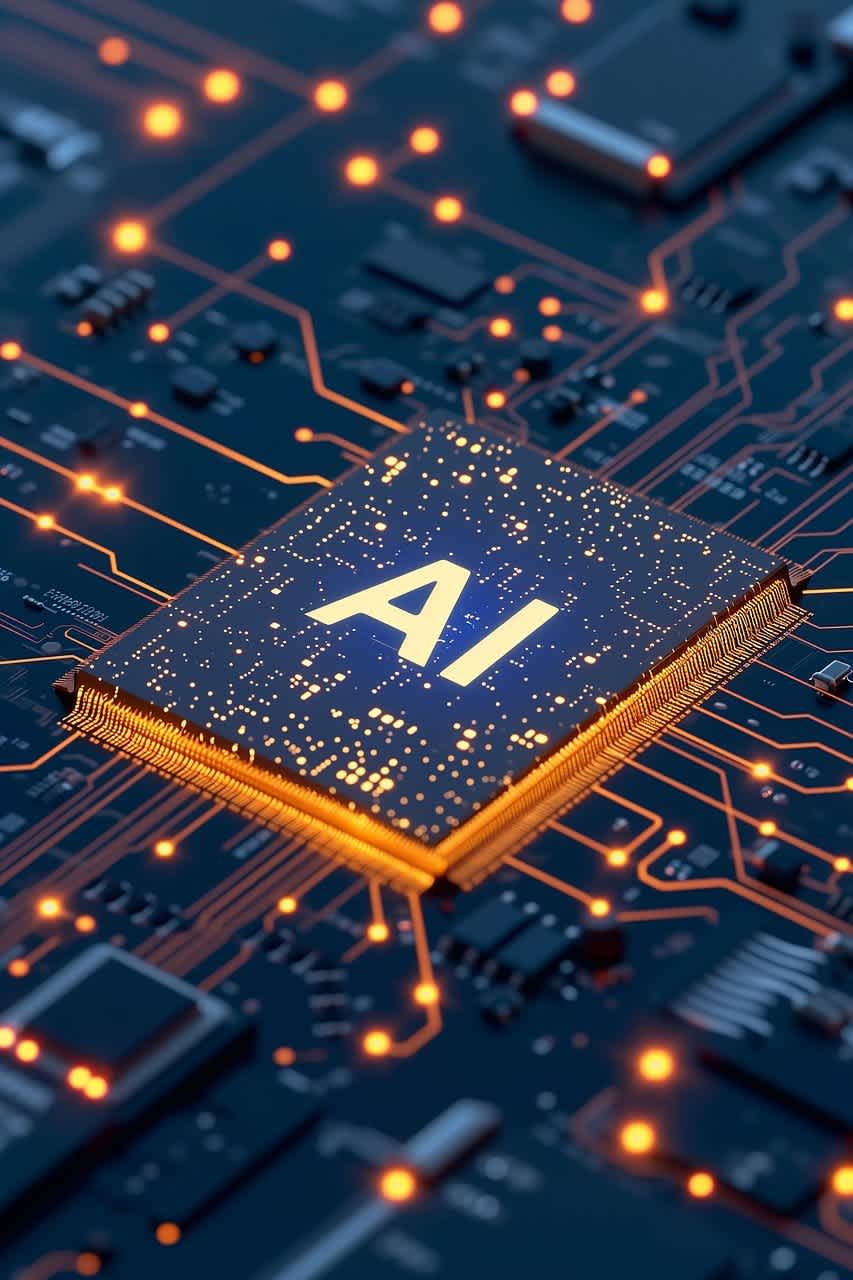Role of Generative AI in Transforming Task Delegation and Project Management
ByJulian Gette
Workast publisher

Workast publisher
In recent years, Generative AI has emerged as a transformative force, reshaping how tasks are delegated and projects are managed. From automating routine processes to providing insights that optimize resource allocation, technologies are revolutionizing the landscape of project management, empowering teams to achieve their goals more efficiently than ever before.
In this guest post, we explore how Generative AI is enhancing the way managers and teams work, streamlining task delegation, and driving unprecedented efficiency. Let’s uncover the potential of machine intelligence and understand how these cutting-edge technologies are setting a new standard for managing ventures.
Modern technologies are not just changing the rules of task coordination; they are rewriting the entire playbook. According to AIM research, the global artificial intelligence market is expected to reach $66.62 billion by the end of the year. At its core, Generative AI uses machine learning algorithms to create content, simulate outcomes, and make complex predictions. Applied to project management, this means that instead of manually assigning tasks, predicting risks, or tracking progress, managers can now use machine intelligence to make these processes seamless and automated.
The integration of Generative AI has numerous benefits:
Enhanced Efficiency: The tools for automating task delegation free up project managers from spending excessive time on administrative duties, allowing them to focus on strategic decision-making.
Optimized Resource Allocation: Implementing Gen AI helps in optimizing resources by providing insights into team availability, skill sets, and productivity trends.
Personalized Task Delegation: The technologies can assess individual team members’ strengths and tailor task assignments based on each person’s unique capabilities and workload.
But what exactly does implementing Generative AI look like in practice? Below, we dive into how it is transforming both task delegation and overall project execution.
The integration involves merging technologies into daily workflows to make task delegation, tracking, and resource allocation more efficient and accurate. AeoLogic states that artificial intelligence adoption in businesses may boost productivity by 24.69%. The technologies are increasingly becoming a necessity for modern project managers, allowing them to utilize insights for better planning and performance.
Generative AI tools can take the burden of repetitive assignments off the project manager’s plate. Machine intelligence can analyze various factors, including skill sets, workload capacity, availability, and the complexity of tasks, to automate assignments. By using natural language processing, tools are also capable of understanding the context of tasks, categorizing them, and delegating them to the most suitable team members.
These tools can even predict which individuals are likely to excel at specific assignments based on historical data. Imagine a situation where a team member excels in crisis management — a tool would assign them to handle high-priority issues, enhancing project efficiency.
Chatbots for project management aren't limited to task delegation alone. These tools offer personalized recommendations that help project managers make more informed decisions. For example, artificial intelligence can forecast potential challenges or bottlenecks based on the analysis of past projects, allowing managers to proactively adjust timelines and resources before issues arise.
Using data-driven insights, digital tools can also provide recommendations for resource allocation, assigning high-priority tasks to the right team members at the right time. This personalization enables a more human-centric approach to project management, ensuring that the team’s unique skills and workload preferences are fully leveraged.
One of the key aspects of project management is planning, and technologies are reshaping how this process is approached. AI-driven tools can create detailed project timelines, considering multiple variables, such as team availability, deadlines, dependencies, and milestones. Artificial intelligence even allows for dynamic project schedules that adjust automatically as conditions change, ensuring that projects remain on track despite unexpected events.
Additionally, these tools can identify risks before they arise, using predictive analytics to simulate different scenarios. This makes project planning a proactive process rather than a reactive one, giving teams the best chance to avoid pitfalls and stay on schedule.
The real power of Generative AI for project management lies in its ability to intelligently automate tedious tasks that were once manual. Let's explore some specific tools for automating task delegation and how they make life easier for project managers:
There are stages specifically built to integrate Generative AI technologies in project management. These platforms leverage machine learning to distribute tasks effectively, eliminating human bias and ensuring a more efficient distribution of work. By using historical data and understanding each team member's performance, tools make better task assignments.
For example, a task distribution platform can identify the right person for a new design task based on previous successes with similar projects, reducing the burden of manual decisions on the manager.
Remote project coordinators are becoming a vital addition to any project manager's toolkit. These assistants are technologies designed to automate workflows, assign tasks, and even send reminders. They can analyze the current state of a project, identify which tasks are pending, and reassign them to available team members, thus saving from micromanaging.
The assistants can be integrated with VoIP communication tools, which helps in real-time task delegation. If a client request comes in during a meeting, the virtual assistant can instantly delegate the assignment to a team member capable of handling it, ensuring quick responses without any delay. Master of Code Global's Generative AI consulting services can help you harness the power of bots to streamline your operations and enhance your customer experience.
Generative AI is boosting team interactions by automating communication processes and enhancing collaborative dynamics. The AI-driven analysis helps to optimize task delegation and offers actionable insights to refine workflows, ensuring the entire team remains aligned and productive.
Master of Code Global Generative AI Slack chatbot can analyze communication patterns within the team and suggest ways to streamline conversations, delegate tasks more effectively, and avoid bottlenecks. It resulted in self-service solutions, error reduction and optimized documentation.
Chatbots are not only revolutionizing task delegation but also paving the way for optimizing entire projects. Here are a few ways to use Generative AI for project optimization:
Projects are susceptible to various issues, and chatbots offer predictive capabilities that identify potential risks in advance. By analyzing data from past projects, Generative AI can forecast where problems might arise and what corrective actions should be taken. It allows project managers to adjust their plans accordingly, reducing the likelihood of delays or resource shortages.
Generative AI for project management can create flexible processes that automatically adjust based on real-time progress. For example, if a particular task is delayed, the AI can adjust deadlines for subsequent tasks, reallocate resources, and even notify stakeholders of the revised timeline. This adaptability ensures that the project stays on track, even when unexpected hurdles arise.
Bots can improve project cooperation by breaking down interaction barriers. AI-driven chatbots can be used for communicating task updates, answering team queries, and automating routine tasks, ensuring that everyone on the team has the information they need when they need it. With real-time communication, team members stay updated without needing constant meetings or email exchanges.
Virtual assistants can also analyze how team resources are used and suggest changes to maximize efficiency. For instance, if a particular team member is consistently overworked, the AI can recommend redistributing tasks to balance workloads. It helps in creating a more productive and engaged team while also ensuring deadlines are met effectively.
One of the challenges of project management is knowing the exact status of a project at any given time. With Generative AI, project managers have access to real-time progress monitoring, providing an accurate picture of the project’s status, ongoing issues, and potential challenges. This allows for more informed decision-making and ensures the project remains on track.
Chatbots in project coordination is not just a short-term trend — it represents a future where intelligent automation and smart decision-making become the norm. As technologies continue to evolve, we can expect project management tools to become even more efficient, capable of handling increasingly complex tasks and decision-making processes.
Virtual assistants are likely to evolve into comprehensive decision support systems. These systems will be capable of simulating outcomes for various scenarios, helping project managers make informed decisions about resource allocation, project timelines, and team responsibilities. It will further reduce uncertainties and provide clearer direction for achieving project objectives.
The next stage of evolution will likely focus on making AI more human-oriented. This means bots that understand not only the technical aspects of a project but also the human side — including team dynamics, individual motivations, and emotional intelligence. By focusing on both productivity and employee well-being, technologies will create more harmonious work environments.
Agents will not replace project managers but boost their capabilities. AI will handle the administrative, repetitive, and data-driven tasks, while human managers focus on strategic thinking, innovation, and leadership. The collaboration between artificial and human intelligence will redefine the role of project managers, allowing them to add value where it truly matters.
The role of virtual assistants in transforming task delegation and project management is undeniable. By implementing Generative AI, businesses can automate routine tasks, optimize resource allocation, and ensure better project outcomes. Machine intelligence tools for automating task delegation take the guesswork out of assigning tasks, while analytics and insights ensure projects are always on the right track.
As we look to the future, Generative AI will continue to play a crucial role in making project management more streamlined, efficient, and human-centric. Companies that embrace these technologies today will not only gain a competitive edge but also pave the way for a more productive and efficient tomorrow. Embrace chatbots in your project management strategy, and watch your team’s potential soar.
